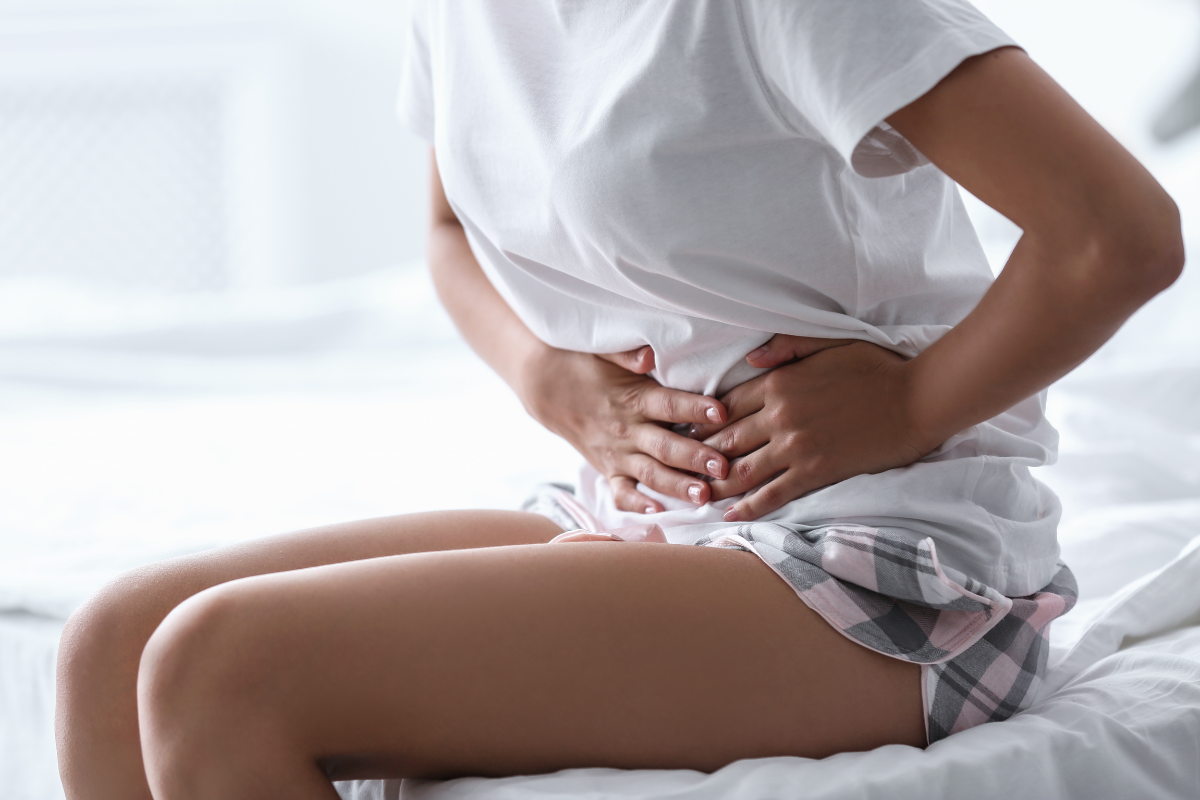Blog /Endometriosis: Is Your Period More Than Cramps?
Endometriosis: Is Your Period More Than Cramps?
- by Elanza Wellness August 18, 2024 4 min read

Menu title
This section doesn’t currently include any content. Add content to this section using the sidebar.
Your headline
Image caption appears here
$49.00
Add your deal, information or promotional text

Written by Elanza Wellness
Periods can be uncomfortable, but for some, the pain is more than just a mild inconvenience. If you're experiencing intense discomfort, it could be a sign of a condition like endometriosis. Recognizing the symptoms early is crucial for managing your health and fertility. Let's explore how to determine if your period pain might be more than just cramps and discuss the next steps for diagnosis and management.
Endometriosis is a condition where tissue similar to the lining of the uterus grows outside the uterus. This tissue can implant on various organs, including the ovaries, fallopian tubes, and intestines. Unlike the regular uterine lining that sheds during menstruation, this misplaced tissue has no exit route, causing inflammation, cysts, scar tissue, and adhesions.
Endometriosis symptoms can vary widely, but here are some common signs that your period pain might be something more:
While some cramping is normal, endometriosis-related pain can be severe and extend beyond your period.
Persistent pain in the pelvic region that isn’t tied to your menstrual cycle can be a warning sign.
Experiencing pain during or after sex is a common symptom that can affect your intimate relationships.
This pain often worsens during menstruation.
Endometriosis can cause heavy periods (menorrhagia) or bleeding between periods.
It is a leading cause of infertility, found in 20-40% of women who struggle to conceive.
These may include fatigue, diarrhea, constipation, bloating, and nausea.
Endometriosis can significantly impact fertility. It can distort pelvic anatomy, create adhesions, and affect the immune system, making conception challenging. Endometriosis-related ovarian cysts, or endometriomas, can also damage the ovaries and affect egg quality. While not all women with endometriosis are infertile, the condition is a significant factor for many. There are a range of options available for supporting women with endometriosis to get pregnant, ranging from Mosie Baby’s at-home insemination kit, to in-office fertility treatments like IVF.
If your symptoms are severe enough to disrupt your daily life, it might be more than just a period. Many women endure years of intense discomfort, believing it to be normal. However, if your symptoms affect your day-to-day activities, relationships, or mental well-being, it’s time to consider that your pain might not be typical.
Endometriosis affects approximately 1 in 10 women of reproductive age, meaning millions globally experience this condition. Despite its prevalence, endometriosis often goes undiagnosed or misdiagnosed, with an average delay of 7-10 years before diagnosis. This delay is often due to a lack of awareness among both patients and healthcare providers and the normalization of severe menstrual pain.

If you suspect that your period pain might be due to endometriosis, consult your healthcare provider. Here are some diagnostic methods they might use:
This can detect abnormalities but may not identify small areas of endometriosis.
An ultrasound can identify cysts associated with the condition, though it may not confirm endometriosis.
This minimally invasive surgery is the definitive way to diagnose endometriosis. A small camera is inserted into the pelvic cavity to check for endometriosis and can also remove or biopsy tissue.

While there is no cure for endometriosis, various treatments can help manage symptoms:
These can reduce or eliminate menstruation, helping alleviate symptoms, though they may not be suitable for those trying to conceive.
In severe cases, surgery can remove endometrial tissue, which may reduce pain and improve fertility.
Diet, exercise, and stress management can play a significant role in symptom management. Anti-inflammatory diets, regular physical activity, and relaxation techniques can help. One way to proactively manage endometriosis symptoms is through self-care and tracking apps, such as ELANZA Wellness’ EverythingEndo app, which offers personalized support and guidance, helping you monitor symptoms and find effective pain management strategies like pelvic floor physiotherapy. While improving day to day quality of life, this can also empower you to take more control of your health and make informed decisions about your treatment.
If your period pain feels like more than just cramps, the bottom line is that it's important to seek medical advice from a healthcare professional who will listen to you and take your experience seriously. Endometriosis is a common condition that can significantly affect your quality of life and fertility, but with the right treatment, you can manage the symptoms. Trust your instincts and advocate for your health—it's your body, and you deserve to feel your best.
Resources:
Symptoms of endo
https://www.acog.org/womens-health/faqs/endometriosis
Diagnosing endo
https://www.endofound.org/endometriosis
Managing endo
Fertility and endo
https://mosiebaby.com/blogs/conception-101/can-you-get-pregnant-if-you-have-endometriosis